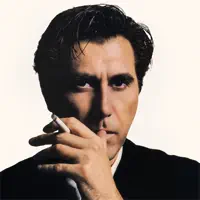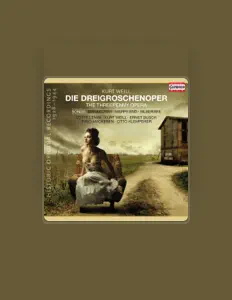
Classical
Germany
Kurt Weill
Top Songs By Kurt Weill
Upcoming Concerts for Kurt Weill
Kurt Weill currently has 2 upcoming concerts; the next one is scheduled for Thursday, November 20, 2025 at Theater kuenstlerhaus43 im Palasthotel in Wiesbaden, , Germany.
More albums from Kurt Weill

About Kurt Weill

Hometown
Dessau, Dessau-Roßlau, Germany
Born
1900
Genre
Classical
Nobody made the transition between the European and American scenes more creatively than Kurt Weill, fusing the formal continuity of opera with the set pieces of the musical with far-reaching consequences for music theater during the latter part of the 20th century. Born in 1900 into a Jewish family in Dessau, Weill studied in Berlin with Humperdinck and then Busoni. Works for the stage rapidly became his main concern—not least his collaborations with Bertolt Brecht, including The Threepenny Opera (1928), on the social and cultural inequalities of Germany under the Weimar Republic, and Rise and Fall of the City of Mahagonny (1930), a satire addressing the dangers of unlimited capitalism. In 1933 he left Germany for the U.S., his synthesis of opera and the musical leading to notable collaborations with Maxwell Anderson on Knickerbocker Holiday (1938) and Lost in the Stars (1949), Ira Gershwin on Lady in the Dark (1941) and The Firebrand of Florence (1944), and Ogden Nash on One Touch of Venus (1943). His opera Street Scene (1947), written with Langston Hughes, was a direct influence on Bernstein and Sondheim, but further developments were curtailed by Weill’s death in New York City in 1950.
Influenced by Kurt WeillKurt Weill has influenced the music of Bryan Ferry, Lou Reed, Bobby Darin and more.
Similar to: Kurt Weill
Discover more music and artists similar to Kurt Weill, like Lewis Ruth Band, Otto Pasetti, Theo Mackeben



![Listen to Nashville New York (Original London Cast) [Live] by Vernon Duke, Kurt Weill & Ogden Nash Listen to Nashville New York (Original London Cast) [Live] by Vernon Duke, Kurt Weill & Ogden Nash](https://is1-ssl.mzstatic.com/image/thumb/Music211/v4/52/63/76/5263764d-4704-2dc8-69ea-7405a9a5b491/5015062100129.png/276x276bb.webp)




















































































































